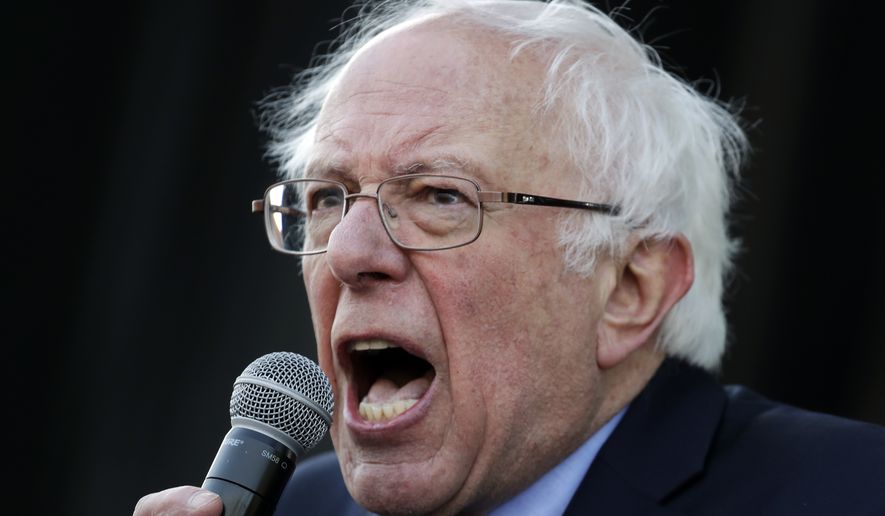The Democratic National Committee took a major step toward limiting the power of “superdelegates” at their presidential nominating convention, a move long sought by the party’s ascendant progressive wing.
According to Politico, the DNC’s Rules and Bylaws Committee approved in concept a proposal to bar superdelegates — mostly the party’s elected officials — from the first round of voting on a presidential nominee.
The panel is expected to fully ratify the proposal in July, Politico said. The full DNC would then take up the measure in August.
Sen. Bernard Sanders, who lost the 2016 presidential nomination to Hillary Clinton in a race where the role of superdelegates became a major issue, applauded the panel’s initial Wednesday steps.
“Congratulations to Chairman [Tom] Perez and the members of the Rules and Bylaws Committee for voting today to limit the power of super delegates in the Democratic presidential nominating process,” the Vermont socialist said in a statement. “This decision will ensure that delegates elected by voters in primaries and caucuses will have the primary role in selecting the Democratic Party’s nominee at the 2020 convention. This is a major step forward in making the Democratic Party more open and transparent, and I applaud their action.”
The rule doesn’t fully bar superdelegates from voting. According to Politico, they can vote in second or subsequent rounds in a contested convention, or if one candidate has mathematically clinched the nomination from pledged delegates — those awarded from primary and caucus voting.
The former circumstance, a brokered convention with multiple rounds of balloting, has not happened in either party since the 1950s. In the latter circumstance, the superdelegates’ votes would be purely ceremonial anyway.
The issue gave Democrats a headache when Mrs. Clinton’s status as the longtime front-runner and party establishment favorite meant she secured endorsements from the overwhelming share of superdelegates. But once actual votes began to be cast in Iowa and New Hampshire, she and Mr. Sanders essentially fought to a standstill, though Mrs. Clinton still had an edge among the pledged delegates at the end.
Mr. Sanders and his supporters repeatedly complained that the party establishment had essentially rigged the race, triggering a sense of mistrust of the DNC among progressives — a fact Mr. Perez acknowledged Wednesday.
He praised the DNC panel for helping “rebuild the trust among many who feel, frankly, alienated from our party,” adding that the proposal will make sure “that no candidate will be able to have an accumulated lead, whether it’s real or perceived, before a ballot has been cast.”
“No automatic delegate will cast a first ballot vote unless the nomination has already been decided,” he concluded.
The Republican Party does not have superdelegates.
• Victor Morton can be reached at vmorton@washingtontimes.com.




Please read our comment policy before commenting.